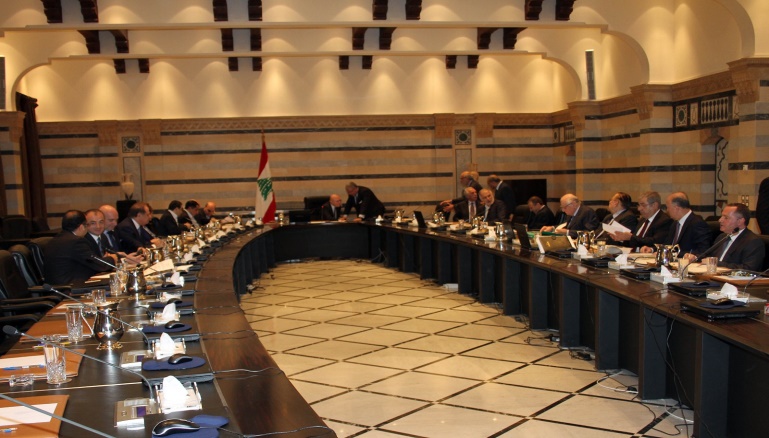Lebanese cabinet faces another crisis
Chadi Ala Iddine/The Arab Weekly/August
Bassil’s fiery declarations do reveal that his party is ready to face all of tough decisions coming its way.
The Lebanese cabinet, which has been barely functioning because of political disputes among its members, was again shaken by the non-agreement over another delicate issue: the extension of the mandate of army chief General Jean Kahwaji.
Practically all of Lebanon’s government institutions have been paralysed for more than two years because of the legislature’s inability to convene a quorum to select a president. This has led to employment extensions at various agencies, including the military. Kahwaji’s mandate to lead the army is expected to be extended for a second time as no agreement on a new commander has been reached. The extension has been a point of contention, especially for the Christian Free Patriotic Movement (FPM), which opposes the move for internal rather than constitutional reasons.With the withdrawal of ministers representing the Kataeb Party (the Lebanese Phalange Party) and the initial refusal of the Lebanese Forces Party to join the ruling coalition, the FPM finds itself as the sole major Christian party in the government. Its exit from the government would unravel the alliance holding it together.
The FPM boycotted the August 25th Council of Ministers’ meeting to protest extending Kahwaji’s tenure. The council refrained from acting on the commander’s mandate and is to meet again on September 8th. “We decided to boycott the Council of Ministers’ meeting as a warning message to the government to stop breaking the law,” FPM President Gebran Bassil said. “Can our fellow partners in this country accept a government without a Christian presence among its members? Without the presence of all of its components, Lebanon cannot be. As for us, we will remain a movement of militants ready to defend the land and take to the streets, always defending our dignity.” Bassil’s fiery declarations reveal that his party is willing to face tough decisions. He may believe a policy of escalation might bear fruit, particularly in the context of the difficult dossiers, such as having his party’s leader, Michel Aoun, win the presidency of Lebanon. This change of policy stems from the failure of the movement’s policy of constructive patience. Bassil’s declarations are embarrassing to the FPM’s strategic ally in Lebanon, Hezbollah, whose ministers did attend the August 25th cabinet meeting.
Hezbollah cannot leave the alliance because it is not in its best interest to work towards bringing down the current government, especially in light of the militant group’s involvement in the Syrian war. Some observers claimed that FPM’s protest against Kahwaji’s mandate extension is a show exercise and that the real target is Saad Hariri, former prime minister and leader of the rival Future Movement. Hariri, a Sunni, is holding to his position of refusing Aoun’s nomination for the country’s presidency. The escalation is also a test by Aoun’s camp to see how far Hezbollah is willing to stand by its side in pressuring Hariri.
Member of Parliament Amine Wehbe said Hezbollah’s reactions to its ally’s escalation campaign are part of a tactic of role switching because both “Hezbollah and the FPM often exchange favours but always within the limits of each party’s own narrow interests”.
Speaking for the FPM, Member of Parliament Simon Abi Ramia told Al-Arab newspaper: “When discussions concerning the presidency were opened, the Future Movement told us that it had no objections to General Aoun’s nomination but it had its own candidate namely, Samir Geagea.”
Abi Ramia said after negotiations that “a bilateral Christian agreement” was reached but that there has been “no change in the situation because of the opposite party’s refusal”.“This shows disdain towards Christian citizens and the Christian point of view and we cannot accept that,” Abi Ramia said.
The strategies adopted by the Aoun camp have not won support from all Christians in Lebanon. The Lebanese Forces Party does not oppose extending Kahwaji’s mandate and the Armenian Revolutionary Federation (Tashnag) said it has no intention of leaving the government in solidarity with the Aoun camp, according to its president, Hagop Pakradounian. However, the Tashnag minister boycotted the cabinet session.
**Chadi Ala Iddine is a Lebanese writer.






















